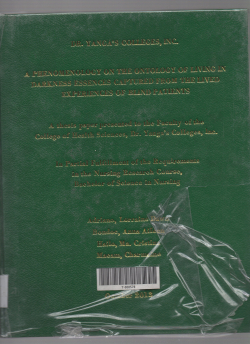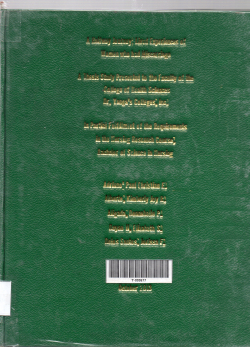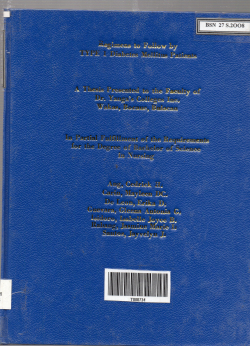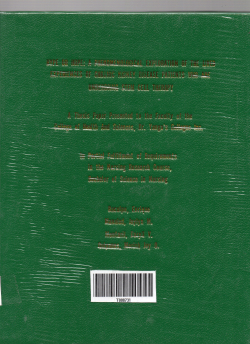Whole no More: A phenomenology on the Journey of diabetic amputees
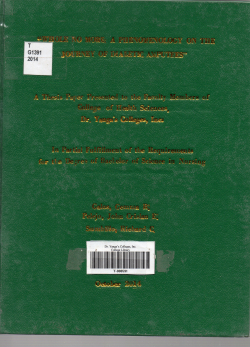
Type
Thesis
Authors
Category
CHS
[ Browse Items ]
Subject
whole no more
Abstract
Amputation associated as one of the major complications of Diabetes is evidently becoming a substantial disability because of its increasing incidence nowadays. Around 10.5% of patients worlwide underwent major amputations due to diabetic foot problems. The amputees face an array of major consequences that pose demarcating challenges in their lives. In this regard, the researchers aimed to explore the realities in their life post amputation by gaining significant insights as perceived by diabetic amputees through eliciting an in depth understanding of their lived experiences that focused on the aftermath of losing a limb. The researchers utilized a descriptive qualitative phenomenological design as outlined by Collaizi to capture the essences from the lived experiences of diabetic amputees. Co- researchers were selected through snowball and purposive sampling satisfying the set criteria:(1) a male or female diagnosed with Diabetes , regardless of its type (2) 30 years old and above;(3) Amputated on the lower extremity for at least a year;(4)Amputated with one or both legs , either above the knee or below the knee ;(5) not using prosthesis;(6) a filipino citizen residing in bulacan.Conducting semi-structured interviews,the researchers interviewed nine(9) co-researchers as guided by the principle of data saturation. After the interviews,innumerable reading and re reading of the transcribed interviews, reviewing and re-listening to the audios and videotapes were done.Significant meanings were identified and combined within the interviews,and eventually formed as common emerged theme. Furthermore, participant observation and field notes were also utilized. To establish rigor and trustworthiness of research results bracketing, member- checking and content validation were done thereafter.The research results revealed four emergent themes that depict the experiences of diabetic amputees. These themes include Disabling Struggles which represents the barriers and limitations they encounter in terms of functionality and activities of daily living directed to being an amputee,whereas,Discerning Affect situation. Moreover,Destigmatizing Acclimatization represents their ways of coping and adaptive modification of lifestyle that relatively promote independency while Deriving Restitution denotes a remarkable phase in the life of diabetic amputees where they have come to terms by means of reintegrating through generating feasible activities and perhaps have found for example,a new hobby or activity which they are capable of participating in spite of leg amputation. Based on the findings , it is then concluded that the diabetic amputees face an extensive and permanent alterations in their everyday life. As nurses it is important that psychosocial and not just physical adaptation is considered in determining outcomes for these people ,and that future care should involve strategies to promote this. And that is changing perspectives, resuming daily activities,regaining productivity,and thereof achieving acceptable levels of functioning.
Number of Copies
1
| Library | Accession No | Call No | Copy No | Edition | Location | Availability |
|---|---|---|---|---|---|---|
| Main | 591 | T G1391 2014 | 1 | Yes |
